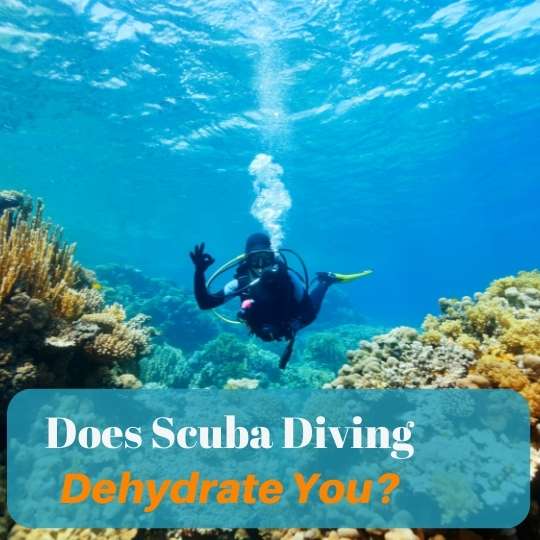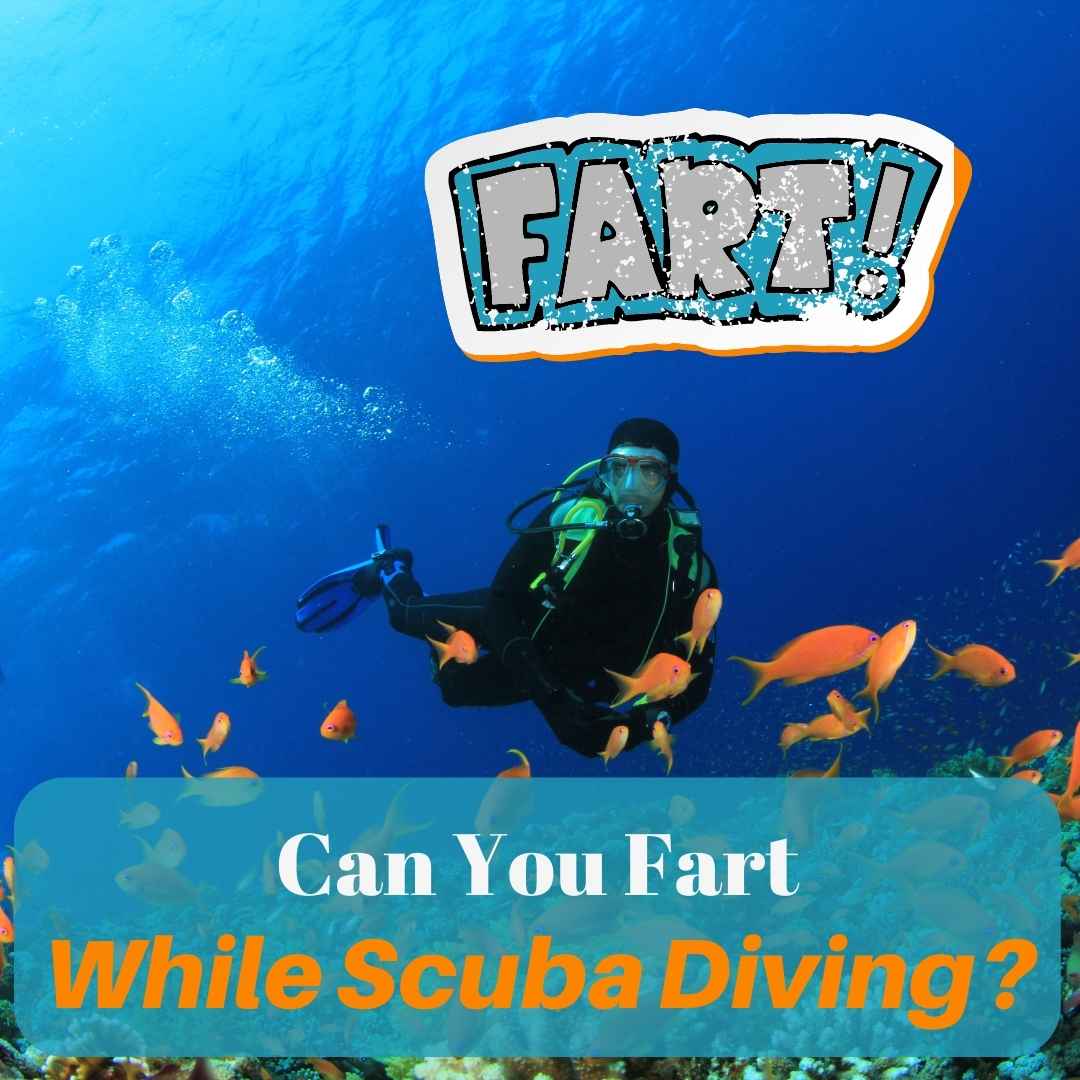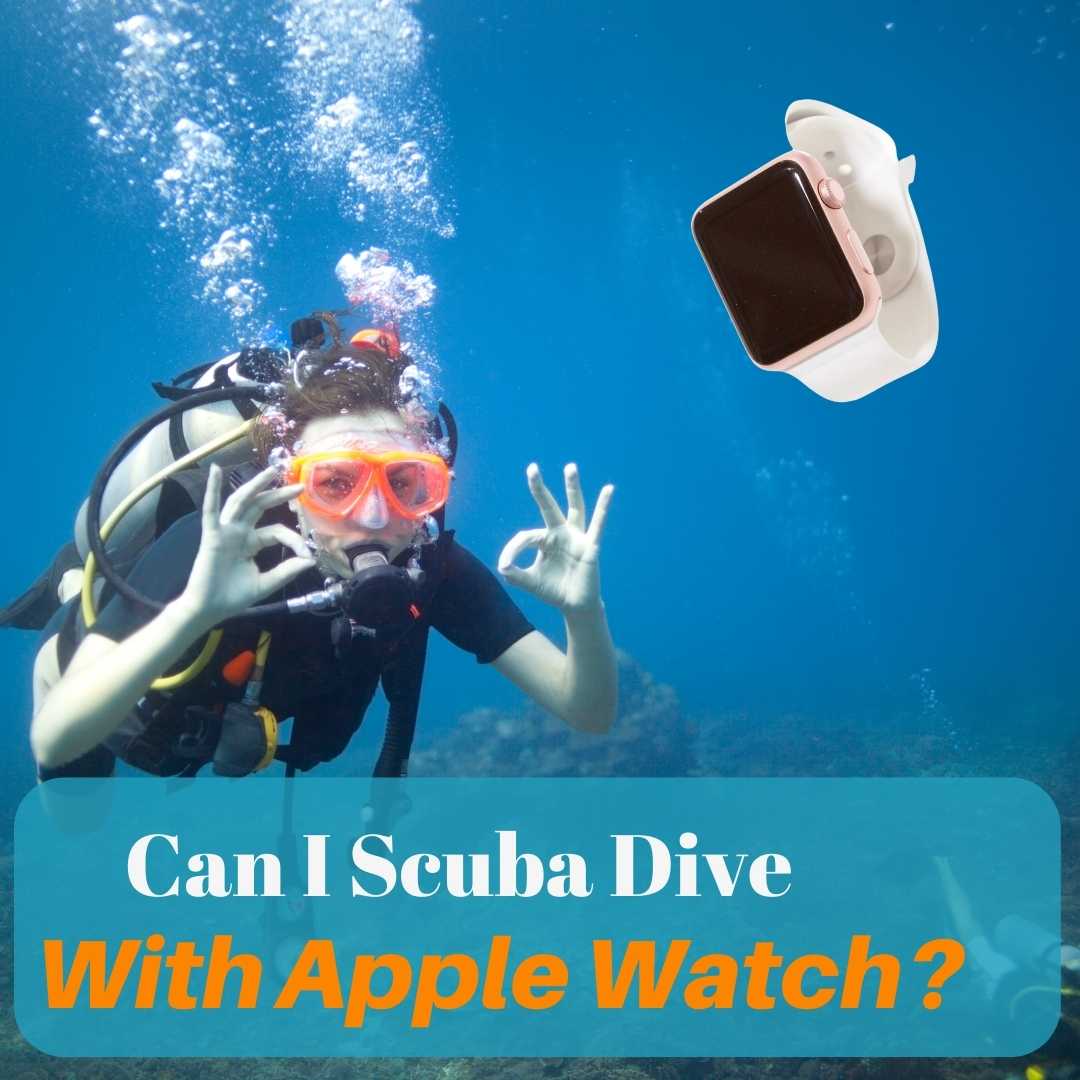How can you get dehydrated when scuba diving in the … WATER?
Well, it turns out diving does dehydrate you, just like any other sport.
In this article, we will go over the importance of staying hydrated on your diving vacation, as well as what causes dehydration. We will also advise you on ways to stay hydrated and safe during your dives.
Let’s dive in! (pun intended).
Table of Contents
What Is Dehydration and Why Should You Care?
We all know that water makes up most of the human body. A healthy person’s body consists of at least two-thirds water [1].
Basically, dehydration happens when you lose more water than you take in. Now, why is this important?
Because water has minerals and salts that our body needs to properly function. As the amount of water in our body depletes – you guessed it – the salts and minerals that we need also reduce.
This results in negative side-effects that are dangerous, especially in extreme environments like underwater.
Why It Is Important to Stay Hydrated when Diving?

Being dehydrated is not a massive problem when you’re on the surface. You can just grab a quick drink and you’re good to go. Unfortunately, you can’t do that when you’re underwater.
It becomes really risky when you are severely dehydrated while diving and the side effects like dizziness start kicking in. The average dive lasts for about 45 minutes, that’s why you always have to make sure you are well hydrated before going in.
Besides the standard side-effects that dehydration causes on the surface, being dehydrated underwater increases your chances of decompression sickness (DCS) [2]. The lack of water causes the blood to thicken. This, in turn, makes it harder to exchange nutrients and gasses throughout your body. The slower rate of gas exchange is the biggest risk for scuba divers, as it results in the body’s disability to offset nitrogen.
Also Read: What Size BCD do You Need?

Does Diving Cause Dehydration?
Now that we’ve established that dehydration should be taken seriously, let’s find out exactly how we lose water before and during a dive.
We’ve identified 11 reasons why scuba divers can be dehydrated.
Exposure to Sun
Most scuba diving destinations are located in hot and sunny areas. Before you get to the diving spot, you’ll have plenty of contact with the sun, and that causes dehydration. How?
The sun burns your skin. To protect it, your body will deploy fluids to protect it in the form of sweat. This sweat, in turn, is evaporated by the sun – water your body lost.
Wind
I was surprised when one of my instructors told me that wind can also cause dehydration. Wind, just like heat, causes the water to evaporate faster.
Salt
Most scuba dive sites will take place in saltwater. Salt crystals extract moisture directly from you as soon as it comes in contact with your skin. Even if you don’t jump in the salt water, the splash from waves and even the wind will contain salt. If you’re going scuba diving, avoid swimming in the saltwater. If you do wash the salt off with freshwater.
Alcohol
What? But I’m on vacation!
Alcohol is a diuretic. It makes you pee more often, thus increasing your water disposal rate. Drinking too much can also result in you vomiting, which dehydrates you even more.
We recommend not drinking alcohol on the day before you dive. It’s fine if you want to have a couple of drinks after the dive, but don’t overdo it if you’re diving again the next day.
Besides its effect on hydration, diving drunk or even slightly tipsy is very dangerous. Please, don’t do it!
Sweating
Let me put it straight – we sweat A LOT in our wetsuits. When you have a wetsuit on, it doesn’t allow your body to cool itself by evaporating water. The fact that you’re physically active for the entire duration of a dive only increases the amount of sweat produced. This is why we recommend putting your wetsuit on only when you’re getting ready to dive.
Immersion Diuresis / Peeing
There’s this popular saying in our community: “There are two types of divers: the ones that pee in their wetsuits, and the ones that lie about it”. As much as I’d like to deny it, we all pee in our wetsuits, and we can’t control it.
It’s called Immersion Diuresis. Water immersion and cool temperatures cause the blood vessels to narrow, sending an increased amount of blood to our body’s organs. The increased volume of blood sends a signal to the kidneys and they produce urine to lower the blood volume [3].
Flight
Flying in an airplane makes you dehydrated because the air in the cabin is dryer than the one we normally breathe. This causes our bodies to lose fluids faster. If you just had a long flight to arrive at your diving destination, make sure to rehydrate yourself before diving.
Vomiting
Seasickness often makes people vomit, thus losing a lot of fluids. When combined with a hangover from alcohol, it becomes a real problem. If you are hangover to the point of vomiting, it might be better to skip the dive.
If you know you have seasickness, have some water nearby to replenish the lost fluids in case you end up vomiting.
Breathing
Another surprising item on the list, but a very important one to understand. Every time you exhale – you lose water. Think about breathing on a pair of glasses or a mirror, that mist you see on the mirror surface? It’s water.
When it comes to scuba diving, breathing plays a crucial role. When diving, we’re breathing compressed air, which is very dry. Our lungs have the role of warming and humidifying the air we breathe, and compressed air takes more work since it’s drier.
It is said that, on average, we lose about one cup of water for every 30 minutes underwater.
Medication
Some medications have dehydration as a side effect. If you’re taking any medication, make sure to check in with your doctor and find out about any side effects. It is not only important for maintaining hydration but also to be aware of other side effects like dizziness or tiredness that can be dangerous.
Sickness
To follow up on the previous point, if you’re sick – your body needs a lot more fluids than normal. If you have a cold or another illness, check in with a doctor before diving, even if it seems like a mild cold.
Also Read: Does Scuba Diving Take Years Off Your Life?
How to Tell if You’re Dehydrated
Besides feeling thirsty, there are other signs of dehydration that are important to know before diving.
Symptoms of mild dehydration include:
- Having a dry mouth
- Urinating and sweating less often than usual
- Having a dark-color urine
- Having a dry skin
- Feeling tired
- Feeling dizzy
If you have any of the symptoms below, you might have severe dehydration and need to see a doctor:
- Confusion
- Lack of urination for a long time
- Increased heart rate
- Rapid breathing
- Experiencing shock
How to Stay Hydrated During Your Dives
We’ve established that scuba divers are more prone to dehydration. Let’s look at some ways to stay hydrated during your dive vacation.
- Drink enough water – always have a bottle of water nearby and drink whenever you feel thirsty. An adult should drink around 2L or ~67oz of water every day.
- Avoid alcohol – don’t drink alcohol on the day before you dive. You can have a couple of drinks after the dive, but make sure it won’t cause make you hungover the next day if you’re going to dive
- Take a shower after swimming in saltwater – saltwater dehydrates you. If you had a morning swim in the sea or ocean, take a shower to wash off the salt crystals
- Do not dive when you’re sick or on medication, that causes dehydration
Staying hydrated is easy if you follow common sense and replenish your fluids whenever you’re thirsty. As with everything in life, do not overdo it. Drinking a lot of water right before diving is not a good idea either.
You may also like: Can You Dive Without a Tank?
Conclusion
Scuba diving does dehydrate you. It’s important to take different factors like your location, the length of your dives, and your health into account and adjust your water intake accordingly.
Although it may sound like a minor thing, getting dizzy or tired when you’re 50 meters deep in water is not great, trust me.
Safe diving!
Continue Reading: Does Scuba Diving Make Your Poop?
Sources
[1] https://www.nhsinform.scot/illnesses-and-conditions/nutritional/dehydration
[2] https://www.health.harvard.edu/a_to_z/decompression-sickness-a-to-z
[3] https://dan.org/health-medicine/health-resources/diseases-conditions/immersion-diuresis/




